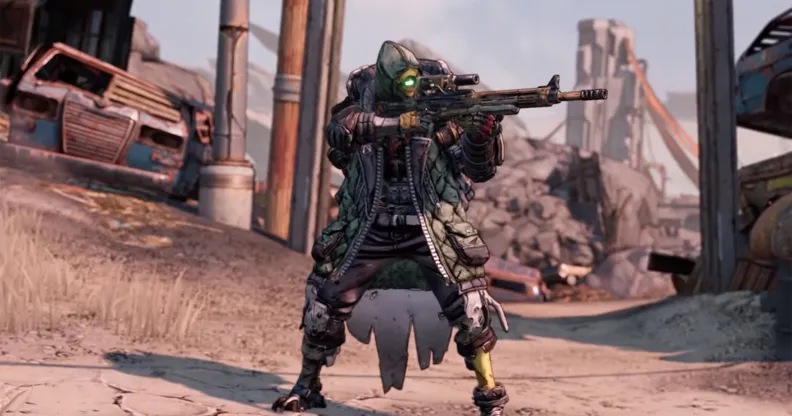A highly-anticipated video game character has just been revealed to be gender-neutral

FL4K has been named an early favourite by Borderlands 3 fans. (Gearbox Software)
FL4K has been named an early favourite by Borderlands 3 fans. (Gearbox Software)
Borderlands 3 character FL4K has been revealed to be non-binary.
As fans gear up for the highly-anticipated shooter game, it has emerged that one of its vault hunters does not fit into the gender binary.
Ahead of its September 13 release date, eagle-eyed fans have picked up on gender-neutral pronouns and allusions to an LGBT+ identity in the sequel’s description description.
“An emergent AI driven in an ongoing quest for self-discovery, FL4K wanders from world to world accompanied by beasts. While they feel a connection with the primal wisdom of animals, the social constructs of humans are strange to them,” reads one such passage.
Borderlands 3 fans debate FL4K’s gender identity
On the Gearbox Software forum, one fan shared a theory that the use of they/them pronouns are a simple reference to FL4K being a robot.
“I think what we’re actually seeing is a collective Artificial Intelligence, like Legion in Mass Effect,” they wrote.
“This is further enforced by non-binary just meaning that it uses quantum computing, instead.”

FL4k wears a pin in yellow, purple and black, the colours of the non-binary flag. (Gearbox Software)
Another fan argued that there is deeper meaning, writing: “Yes, it is that, but it is also a metaphor and an allegory to finding your true identity (that FL4K is in a journey of ‘self discovery’ is flat out stated in the style guide description), one that is very clearly meant to echo the experiences of non-binary and transgender people.”
“Gearbox is absolutely, without a shadow of a doubt making a comment on gender, only in a way that isn’t obvious or heavy handed.”
Others pointed out that the character wears a pin with binary 1s and 0s crossed out in the colours of the non binary pride flag.
Borderlands 3 writer confirms gender-neutral pronouns
Sam Winkler, Borderlands 3’s co-writer, confirmed that FL4K uses they/them pronouns, and that the decision was intentional.
“Maybe [it doesn’t matter] to you,” he wrote to a fan on Twitter. “But I hope you can imagine that it might to some.”
It is also a metaphor and an allegory to finding your true identity.
Winkler gave credit to non-binary fans and allies who campaigned for representation int he games.
“A whole bunch of people believed in it and worked to make it real,” he wrote.

